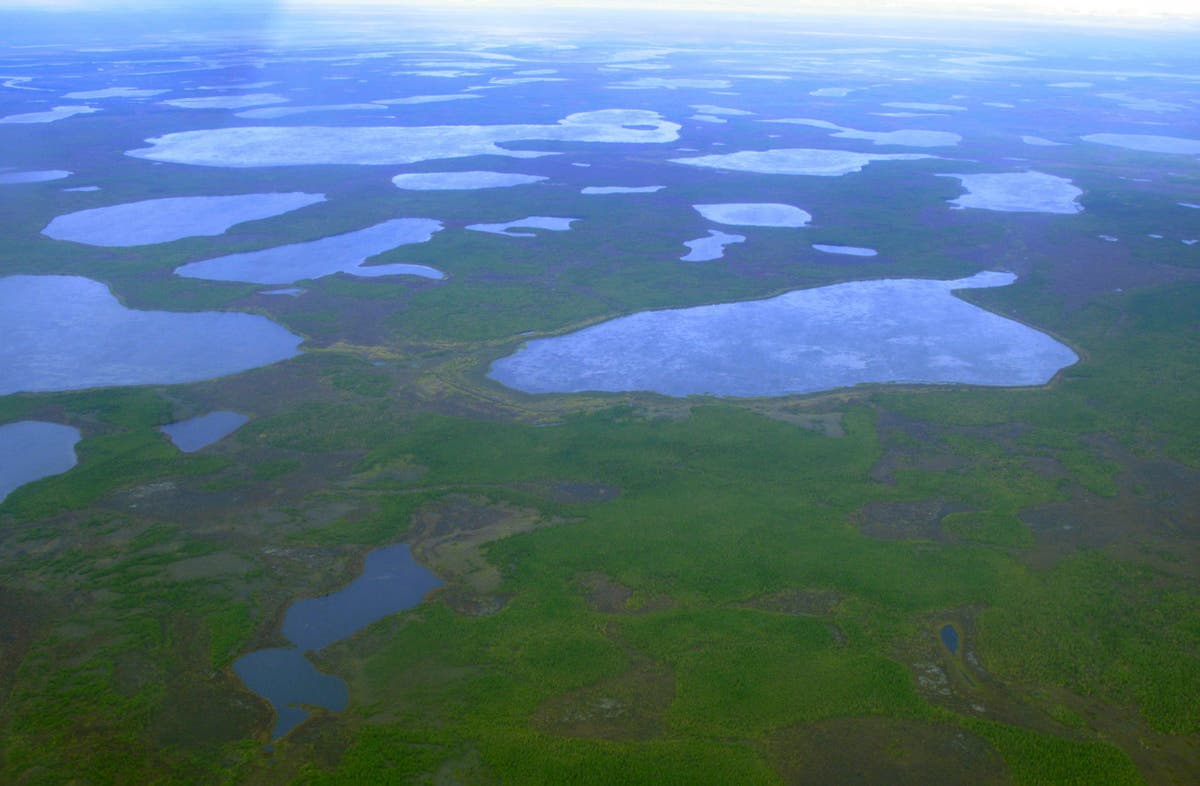
Scientists have revived a worm that was frozen in Siberian permafrost for 46,000 years, according to new research published in the journal PLOS Genetics.
In 2018, scientists from Russia’s Institute of Physicochemical and Biological Problems in Soil discovered two species of microscopic nematode, appearing to be from an unknown species. Researcher Anastasia Shatilovich revived one of the samples with water, then took the worms to Germany for further analysis.
Using radiocarbon dating from plants found in the permafrost nearby, scientists now believe the worms are between 45,839 and 47,769 years old. After analysing the specimens, they’ve claimed at least one is from an entirely new species, which they’ve dubbed Panagrolaimus kolymaenis.
Worms were found in Siberian permafrost in 2018
(REUTERS)
The worms survived all those years in a state of suspended animation called cryptobiosis, according to Teymuras Kurzchalia, of the Max Planck Inst of Molecular Cell Biology and Genetics in Dresden, who was involved in the research.
“One can halt life and then start it from the beginning. This a major finding,” he told CNN.
“We need to know how species adapted to the extreme through evolution to maybe help species alive today and humans as well,” Philipp Schiffer, of the Institute for Zoology at the University of Cologne, another researcher involved in the research, told The Washington Post.
Others were more skeptical of the blockbuster findings, which would represent some of the most striking examples of cryptobiosis ever observed.
“I would love to believe that the animals they are describing have survived being frozen for 40,000 years in permafrost,” biologist Byron Adams of Brigham Young University told Scientific American. “And if I were a betting man, I would bet that it could actually happen, and these things really are this old.”
However, the scientist added, he wasn’t convinced yet the worms themselves were that old, and that the headline-grabbing result could be an ancient piece of plant matter found at the same time of a contemporary microorganism.
“I don’t doubt the age of the organic material in the permafrost,” he added. “Those values are likely legit.”
In addition to ancient organisms, the Siberian permafrost, which is now melting amid the climate crisis, contains vast stores of greenhouse gasses, alarming scientists.

